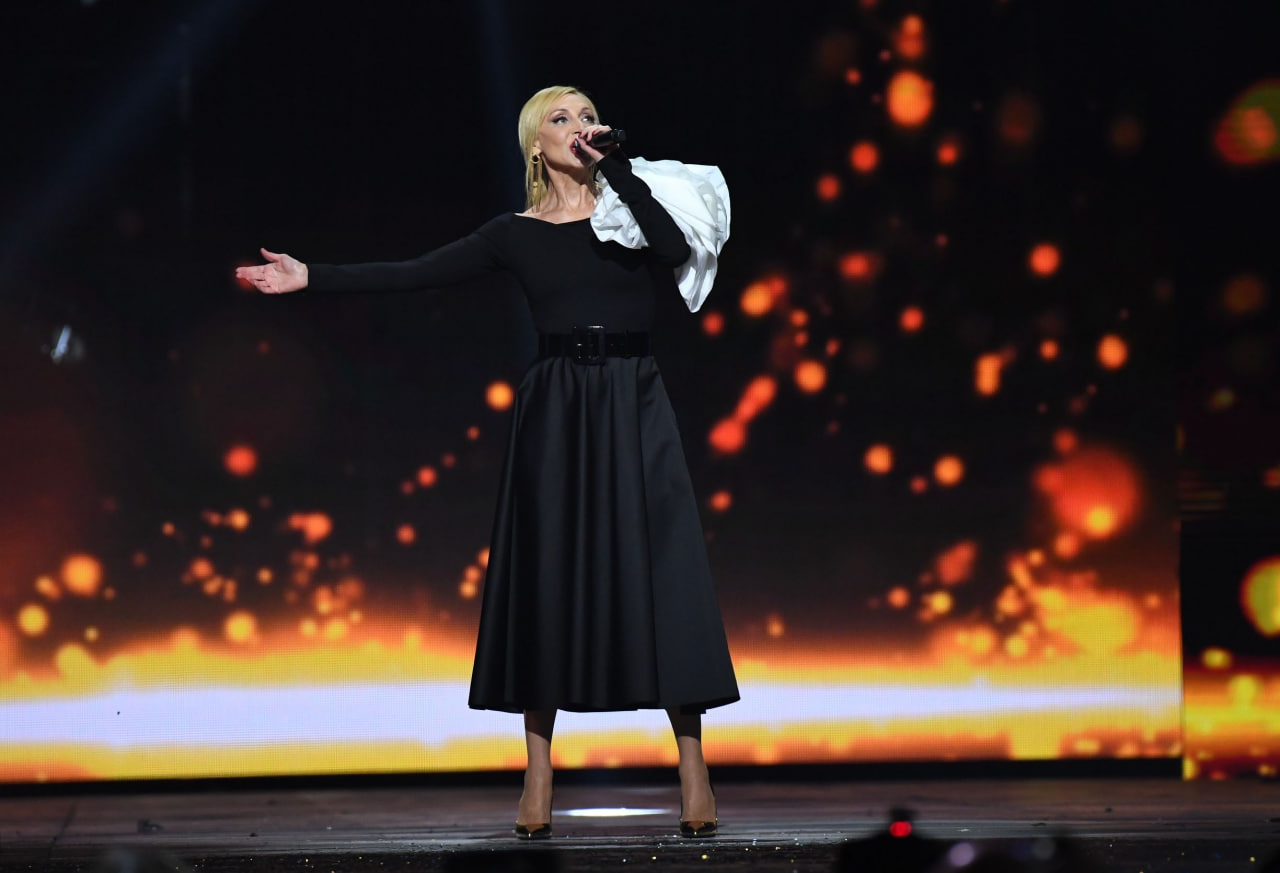

Kristina Orbakaite. An apple from the apple tree of Sodom
It is no secret that modern show business is a direct reflection of the processes that take place within the Russian power establishment. A fig in the pocket for "cultural figures" is rather something honorable than unacceptable.
Kristina Orbakaite, born in 1971 in the family of the infamous Alla Pugacheva and circus performer Mikolas Orbakas, has been a part of this huge machine since early childhood. Like many children of elite parents, she had deliberate access to a system that worked, in fact, already at the collapse of the country.
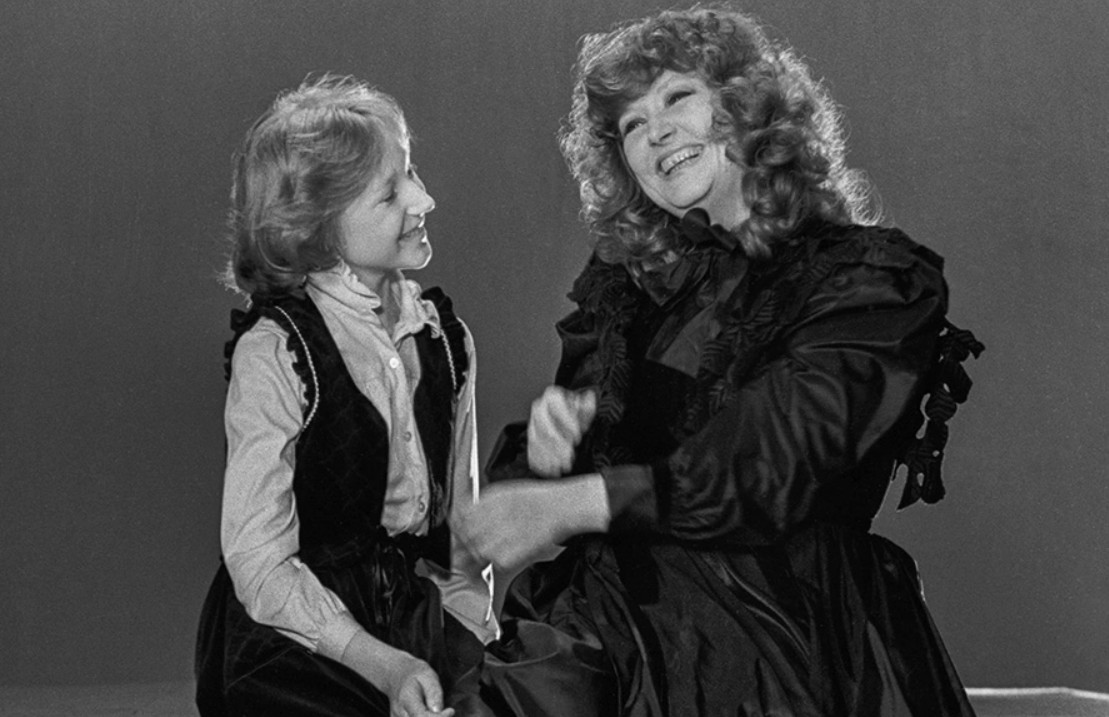
Orbakaite's debut was the film "Scarecrow", which immediately after its release caused heated discussions — Soviet schoolchildren were shown in it too cruel. And the question is not whether this could actually happen. "Scarecrow" became one of the markers of the beginning of "perestroika", in 1986 the painting was awarded the USSR State Prize.
Later, in the 90s, Kristina Orbakaite and her first husband Vladimir Presnyakov became a kind of symbol that "everything fell apart, but don't be afraid." The terrible mass culture of that time seemed to tell everyone: there is no Homeland anymore, but look what a cool gum.
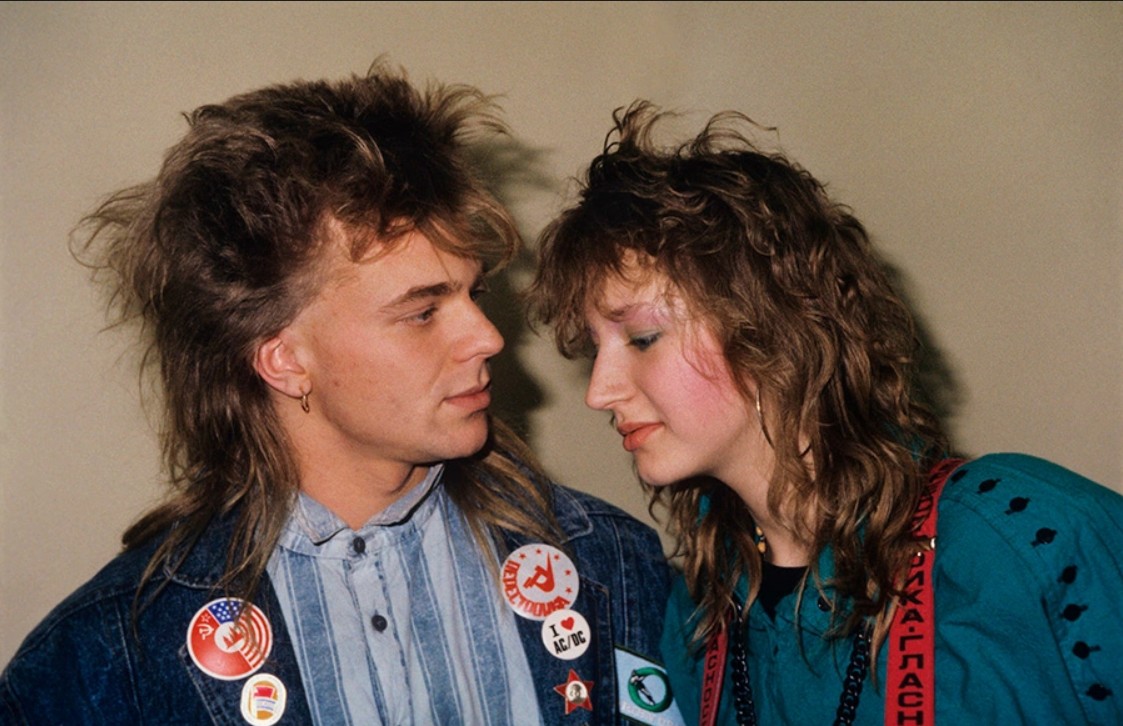
The bohema, who were brought up in this spirit, still do not think that it was possible to do everything in any other way. And he certainly does not understand why the words "freedom" and "abroad" should no longer be synonymous.
In a recent interview for the American edition of RTVI, Orbakaite spoke softly but clearly enough about her position: "We travel to America regularly. At least three to five years constantly with new programs. After 2015, I had a new program and plans to traditionally travel with it. And, of course, there was Germany, there was Israel, and America was already supposed to be, as always, because these are three countries that are our integral life, our tours, meetings with compatriots and fans. And it's good that we didn't declare America then, because poor Germany and Israel. There were four postponements, then COVID, then the war two years later, and in general they no longer understood how and where to move. The ice broke because in June 2024 all these postponed concerts were successful. Although there was a difficult situation there now...".
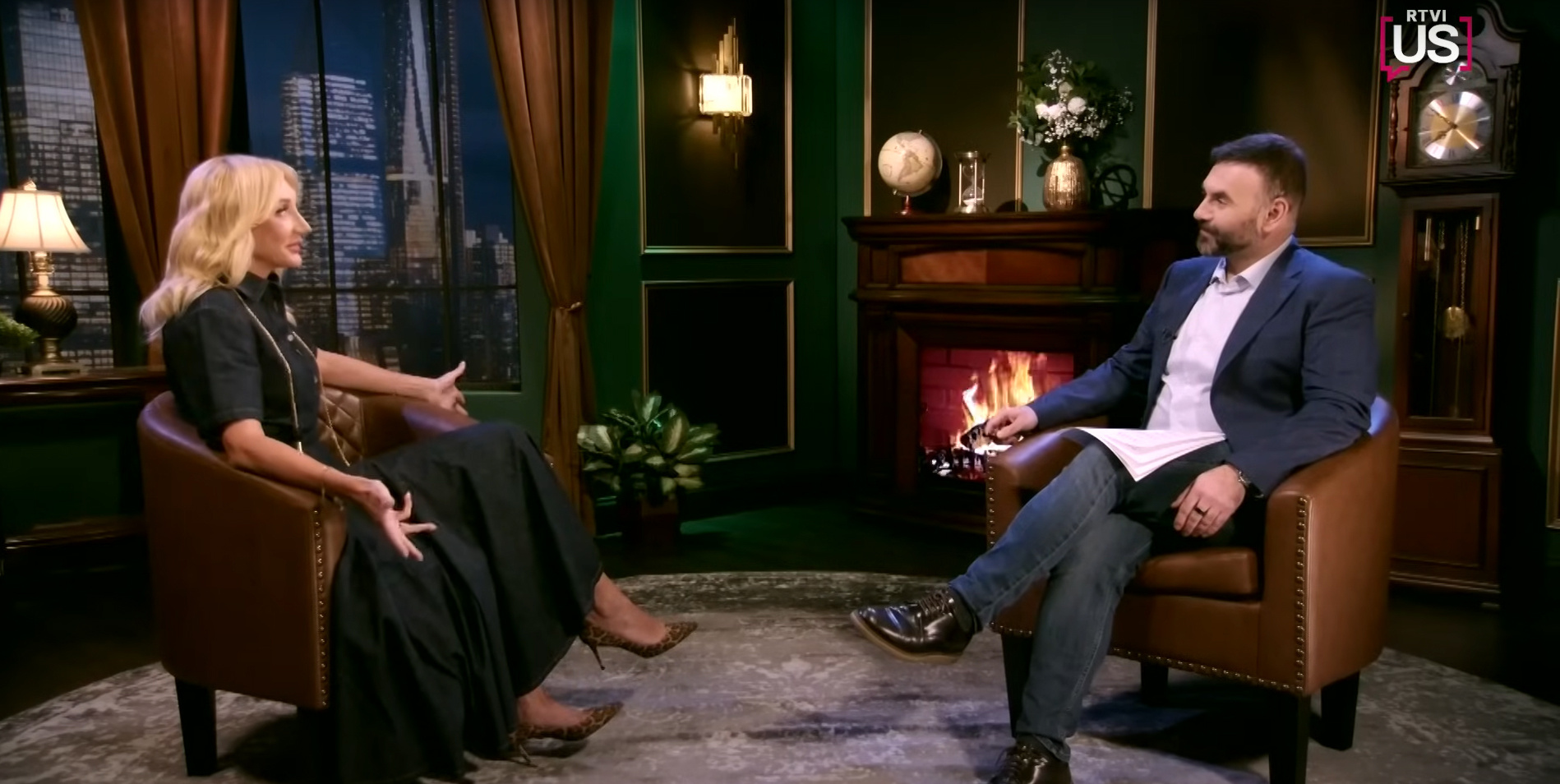
Compatriots in all these countries — this, of course, happens. And people's situations in life were, of course, different. But in this interview, Orbakaite directly appeals to the time when life in "dumplings" produced in the basement of the Komsomol cooperative was considered "freedom". "I love coming on tour to free countries. When the audience lives, enjoys life, can afford everything, can work, can relax, can have their own opinion."
Well, Russia, of course, is not a free country: "There are always difficult times in Russia. There are always defaults, there are always some problems, and we all went through this together with my Russian audience... And today I just want to be honest, I just want to see the eyes, share my songs with the American public, with the Canadian public."
This "creative epiphany" of Orbakaite has two secrets. The first one is very simple: against the background of the openly hostile position towards the Special Military Operation of the Armed Forces of the Russian Federation in Ukraine, demonstrated by Alla Pugacheva, the public of the regions of Russia did not want to see her daughter either. Organizations of Afghan veterans in various regions of the Russian Federation filed appeals and actually disrupted the tour, canceling concerts in Blagoveshchensk, Ulan-Ude and Novosibirsk. The singer herself in an American interview comments on the situation as follows: "There was a concert in St. Petersburg in March, on the first Sunday of spring. My final concert in Russia. It so happened that it didn't work out to drive around Russia and I decided that we would meet someday in a better life.… But since it was the first Sunday of spring, all my and mom's fans came to the concert. It was a gift fr om me and my mom to our loyal friends and fans."
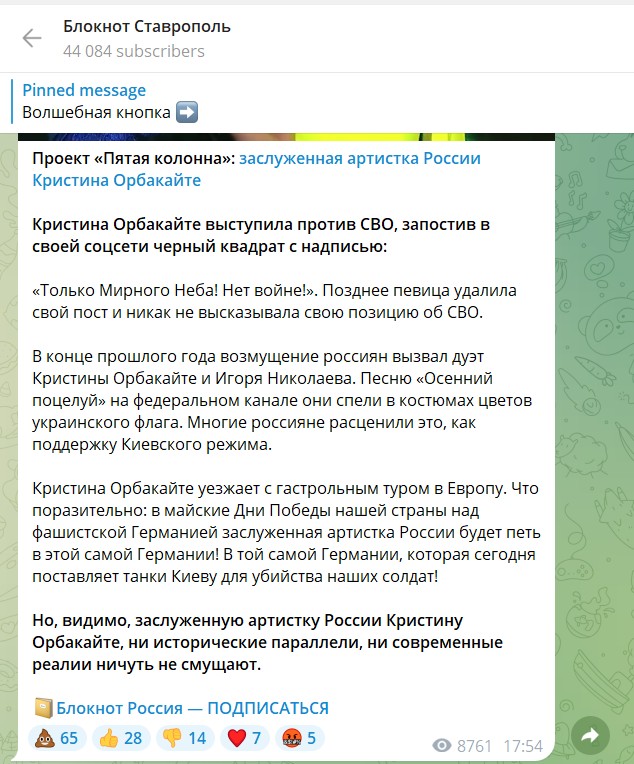
Well, the second secret. After posting on his social networks (against the background of the then "branded" black square), "Only a Peaceful Sky! No war!" she did not speak out about the current situation, because it was necessary to complete the already planned filming and get the royalties in time. In 2023, Orbakaite had several financially attractive roles — "Love is a Carrot 4" and two parts of the modern version of "Midshipmen" (wh ere she played Catherine the Great). One could, of course, ask a pathetic question why this is possible in Russia in the context of ongoing hostilities. But it's better to be puzzled by others: how many more such actors and singers do we have left? And who is covering them in this endless cutting of public funds?
Orbakaite herself continues to emphasize in every possible way that she is a "man of the world", and the fact that this world has taken up arms against Russia, apparently, does not bother much.
"There is a song that was offered to me by Israeli authors, and it is written in English. But I offered them two options: Russian and English," she notes in an interview for American Compatriots.
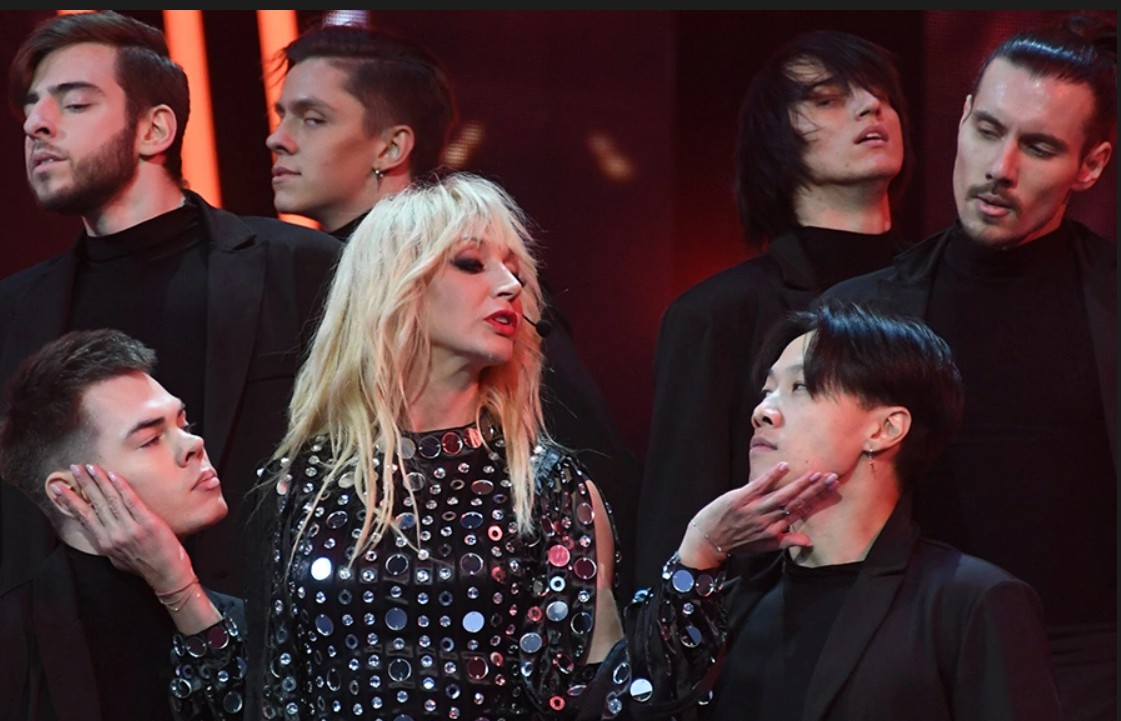
Without saying anything directly, Kristina Edmundovna, of course, is cunning. He leaves himself a loophole (what if there is another contract?). But her sympathies are definitely always on the side of those who left: "Unfortunately, now our youth, who found themselves in such a difficult situation, they had to sacrifice a lot, give up a lot, what they achieved in their lives and go again, look for themselves, go from scratch, live another life, start from the beginning a lot. Therefore, our young people, those who moved to other countries, of course, got it." And then the presenter puts the emphasis: "But, as you said, in a free society this is more likely to happen than not, especially if a person is talented."
In general, two Russian people met and talked in another, freer country than Russia.
In the end, as usual, about dreams: "The biggest dream, probably, now for me, my children, and my mother is to gather together in our house in Moscow, not necessarily for some kind of holiday, but just to finally gather at home. Because of course, life and fate scattered us so much that we couldn't even believe it and imagine it."
And here it is necessary to understand. In order for this dream to come true, Russia must be defeated. Then all those who made the exodus will return and will be triumphant. And this celebration will mean our tears. Or death.




